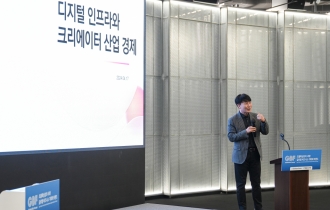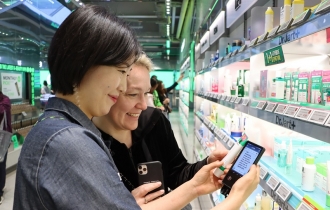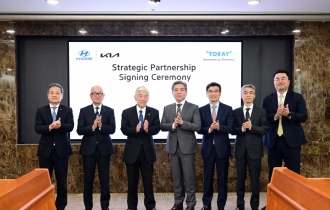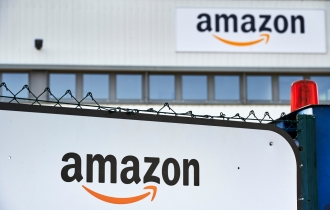[INTERVIEW] Panagene to seek FDA approval for liquid biopsy test
[THE INVESTOR] Korean biotech company Panagene plans to apply for regulatory approval of its own liquid biopsy testing in the US this year with aims to compete head-on with its bigger rival Roche.
“I’m confident Panagene’s testing technology is more advanced than that of Roche,” Panagene CEO Kim Sung-kee told The Investor in a recent interview on April 21. “We will take on Roche when the market is fully opened.”
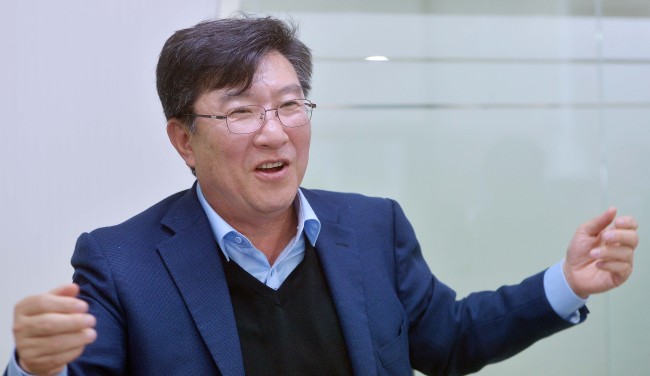
Panagene CEO Kim Sung-kee Lee Sang-sub/The Investor
Physicians usually extract tissues from tumors in order to diagnose and monitor diverse cancers. Liquid biopsy, one of the hottest trends in oncology, uses just a small sample of blood to detect cancer.
Roche became the first drug maker whose liquid biopsy testing tool got the approval of the US Food and Drug Administration in June last year.
The Panagene CEO also showed confidence in getting US approval for the company’s PANAMutyper.
“What makes our PANAMutyper greater than Roche’s DNA-based test is the use of peptide nucleic acid, or PNA,” he said.
According to him, PNA is an artificially synthesized polymer that mimics the behavior of DNA, which provides multiplex genotyping information with “higher sensitivity and specificity” than DNA.
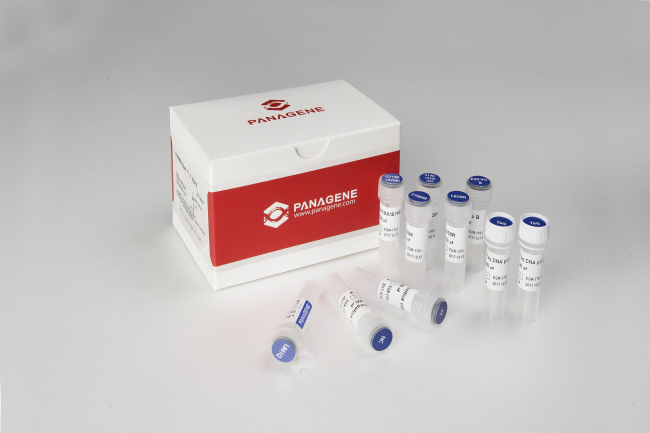
Panagene's liquid biopsytest toolPANAMutyer
“Panagene and Roche will compete head-on when the Korean market gets into full swing. At least in Korea, Panagene will have an upper hand to outpace Roche,” Kim said, adding the company will be seeking to expand its presence globally.
Both Panagene and Roche’s liquid biopsy tests are designed to detect epidermal growth factor receptor gene mutations in non-small cell lung cancer patients. The Korean company also plans to launch more products that detect other types of cancers including melanoma and thyroid disease.
The Korean firm also supplies PNA that can be used in molecular biology, genetic diagnostics and medicine to 300 global companies and institutions including Qiagen and OpGen.
“We expect the export of PNA can be bolstered once any company successfully develops PNA-based medicine like orphan drugs because Panagene is an exclusive supplier,” Kim said.
Before Panagene secured the core technology of PNA mass production and acquired worldwide exclusive supply rights in 2006, commercialization of PNA was deemed impossible even though the DNA mimic was first discovered by the University of Copenhagen in 1991.
By Park Han-na (hnpark@heraldcorp.com)
EDITOR'S PICKS
- Trilateral talks acknowledge ‘serious’ slumps of won, yen
- Samsung C&T president makes her first business trip to Milan
- Seoul Business Agency CEO says SNS marketing essential for SME
- CJ Olive Young offers real-time translators for foreign visitors
- Hyundai Motor, Toray join hands for material innovation in mobility
- Paris Baguette debuts in the Philippines
- Samsung develops fastest DRAM chip optimzied for ondevice AI
- Amazon fuels e-commerce rivalry with free shipping campaign








